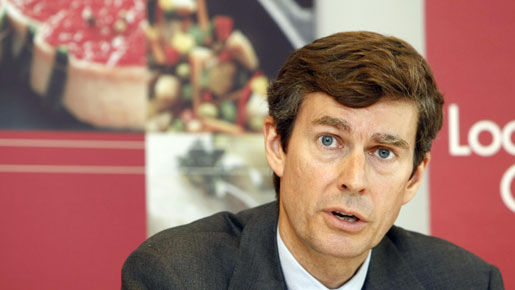
Pierre-Olivier Beckers knows his business. Since the age of 23 he has been working to drive forward the company of which he is now CEO, Belgian international food retailer Delhaize Group. Having started as a store manager in the group’s US based operation, within eight years he was appointed to the executive committee. He is now recognised as one of the most influential people in the food retail world and is consistently placed in Supermarket News’ Power 50.
Contrary to what one might expect, the majority of Delhaize Group’s business is carried out not in Europe but in America. With 60 percent of its stores and 75 percent of its total business located here, Beckers’ knowledge of the market from the earliest part of his career at Delhaize is very important. However, this hasn’t meant that he has avoided controversy in the US entirely – in fact, quite the opposite.
In 1999, Beckers was Chairman of Delhaize America, as well as having recently been appointed CEO of the whole group. It was at this time that he took the decision to try and grow the Food Lion chain, moving it into new areas. This was not the first time that such a move had been tried – in the 1980s attempts were made to move into Texas, but ultimately failed. Rather than trying to build up the chain in a new area from scratch this time, though, Beckers took the decision to expand through acquisitions, the most important of which was upmarket Hannaford.
It was not so much this acquisition itself that was divisive, but the manner in which it was carried out. Food Lion’s co-founder Ralph Ketner launched a scathing attack on Beckers’ handling of the company. In a special article written for the Salisbury Post, he criticised everything from moving the location of the annual stockholders meeting, to disallowing cumulative shareholder voting. But what really riled Ketner was the way in which Delhaize Group, under Beckers’ command, intended to carry out the merger between Food Lion and Hannaford.
The main crux of his argument against the deal was financial. Firstly, Ketner stated that Delhaize had offered to pay about $1bn more for Hannaford than it was worth – at the time, the company’s shares were trading at $63 and Delahaize Group offered $79. He then sited what he considered to be other acts of foolishness, such as a $2.5 bn goodwill gesture and the need for Food Lion to take out a $3bn to complete the acquisition at an interest rate of 7.8 percent. Despite Ketners misgivings about the merger, in 2001 it was completed successfully. However, from this point on, business became very shaky for the chain.
It is difficult to say what was the direct cause of the downturn in the company’s sales figures; was it the general downturn in the US food retail market? Was it the acquisition of Hannaford? Was it a bit of both? Whatever the cause, in 2002, Beckers demoted the existing CEO of Delhaize America to Vice Chairman, installing himself in his place. Beckers thus effectively gave himself ‘double control’ over Delhaize America, as CEO of that company and as CEO of the parent company, Delhaize Group. Beckers management style also raised some eyebrows in the US.
Although he took a hands-on approach in the early days of his two-year run as CEO there, modifying the layout to increase customer convenience, he took a more hands-off approach subsequently. His decision to pursue a more organic form of growth following the merger with Hannaford was not very attractive to American investors, who sought a more dynamic and exciting strategy. Instead, he placed a higher premium on building relationships between employees and consumers – an environment that already existed in the Group’s European operations, to great success. While Hannaford continued to do well under this strategy, Delhaize US, under Beckers’ stewardship, was forced to close 41 Food Lion stores in 2003 and, one year later, 34 stores from another of its chains, Kash n’ Karry. In 2004, Beckers relinquished his position as CEO of Delhaize America, remaining CEO of Delhaize Group as a whole.
It is difficult to predict the future of the group. The downturn in the US food retail market, followed by the downturn in the American economy and then the world have hit the company in waves – each time the company’s revenue figures appear to be recovering they take another hit. Despite this, things appear to be levelling out; the biggest drop in revenue was 2004, with the beginning of the recession in 2007 having much less of an impact. But, according to recent articles in the trade press, price wars in the US food retail market are putting pressure on the Group’s profit margins – third quarter figures for last year show a 10 percent drop. Nevertheless, the company has announced that in 2010 it expects to see operating profit grow between seven percent and 12 percent.
Despite his vast experience within Delhaize Group, the company’s performance under Beckers has been somewhat unsure, with shop closures and asset sales. However, given the accompanying economic climate, it is difficult to judge whether this is due to his leadership style or whether the recession has been the controlling factor. With the global recovery now expected, the coming years will be the real test for Beckers, as confounding factors fall away and he is left to set the agenda. For such a respected figure in the industry it is hopeful that Beckers will lead the company on to increasing success in all markets.

